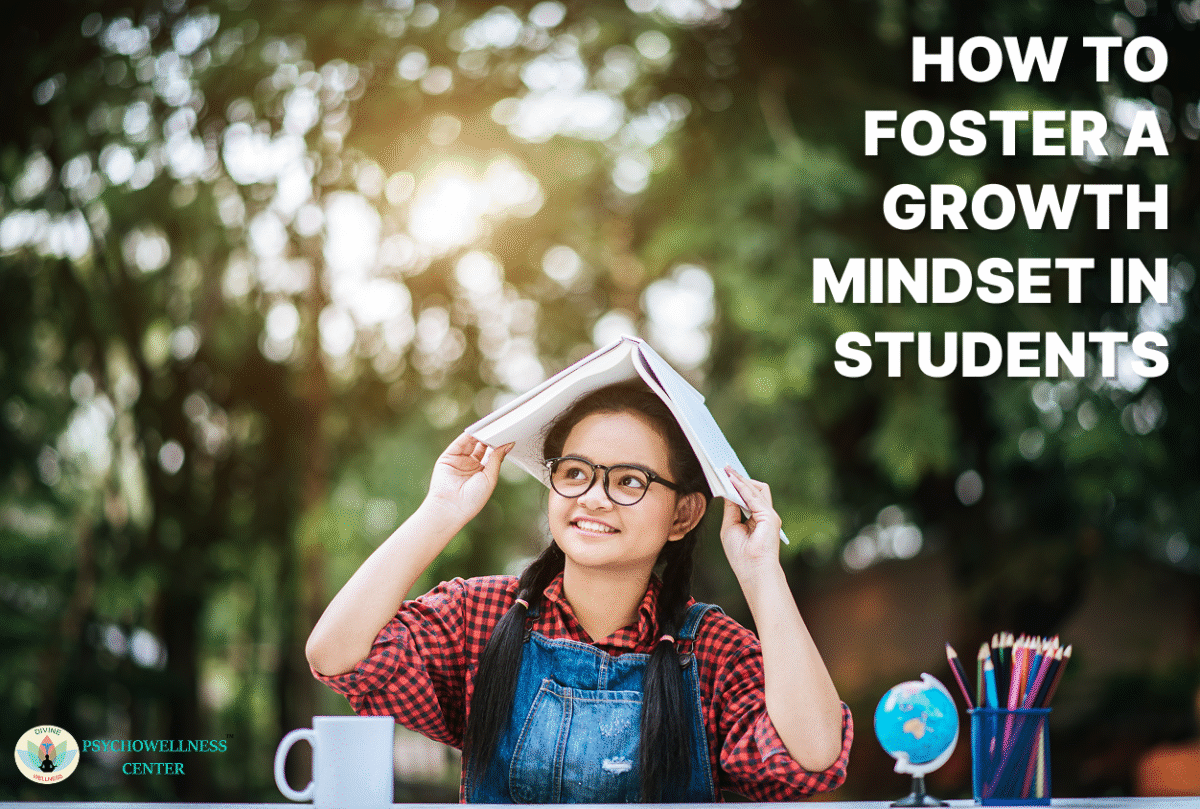In today’s fast-paced world, the pressure on students to perform well in academics, build a successful career, and fit in with their peers can be overwhelming. However, the secret to long-term success lies not in achieving perfection, but in embracing a growth mindset, the belief that abilities and intelligence can be developed through dedication and hard work. Fostering a growth mindset in students isn’t just about improving grades; it’s about empowering them to take control of their learning journey, enhance their motivation, and build confidence to face challenges head-on.
Here’s how educators, parents, and mentors can help students develop a growth mindset for a more resilient and successful future.
1. Encourage Mindfulness to Build Self-Awareness
One effective strategy for fostering a growth mindset is mindfulness. When students practice mindfulness, they become more aware of their thoughts and emotions. This awareness helps them recognize self-limiting beliefs like “I’m just not good at math” and reframe them into more constructive thoughts such as “I’m not good at math yet, but I can improve.”Simple mindfulness exercises, like deep breathing before a test or journaling about academic challenges, can shift focus from fear of failure to curiosity and growth.
2.Praise Effort, Not Just Results
Instead of celebrating only high scores, recognize and praise the effort, strategies, and persistence that led to improvement. Comments like “You worked hard on this project and it shows” or “I see how much time you spent solving those problems” reinforce the idea that success comes from perseverance, not just natural talent. This approach builds motivation and shows students that progress is possible with effort, a cornerstone of the growth mindset philosophy.
3. Normalize Mistakes as Learning Opportunities
Many students fear failure because they think it reflects their intelligence or worth. To counter this, create a safe environment where making mistakes is not only accepted but encouraged as part of the learning process. When students understand that even the most successful people encounter setbacks, they’re more likely to stay committed to their goals, both in academics and beyond.
4. Connect Learning to Real-World Careers
“When will I ever use this?” is a common question from students. Making connections between school subjects and real-world career paths helps them see the bigger picture. Understanding how perseverance in science could lead to a medical career, or how improving communication skills can help in business, boosts motivation and shows that learning has a purpose. When students see learning as a tool for future success, they are more likely to embrace challenges and persist through difficulties.
5. Encourage Collaboration with Peers
Learning doesn’t happen in isolation. Interacting with peers in group discussions, study sessions, or project collaborations fosters teamwork, empathy, and exposure to different perspectives. Students can learn from one another’s mistakes and successes, building both academic competence and self-confidence. Peer support also creates a sense of community, reducing stress and boosting engagement.
6. Set Goals and Reflect on Progress
Help students set short-term and long-term goals that are specific, measurable, and achievable. Teach them to reflect on their progress regularly. What strategies worked? What could be improved?
This reflection process reinforces mindfulness and gives students ownership over their learning. Additionally, it reaffirms that obstacles are a necessary part of the journey rather than its conclusion.
7. Lead by Example
Teachers, parents, and mentors who model a growth mindset in their own lives send a powerful message. Talk about your personal struggles and how you overcome them. Talk openly about times when you struggled but kept going.
Conclusion
Fostering a growth mindset in students is not a one-time effort; it’s a continuous process of nurturing curiosity, resilience, and self-belief. By integrating mindfulness, encouraging collaboration with peers, connecting learning to career goals, and celebrating growth over perfection, we empower students to thrive in both academics and life.
Students often carry invisible burdens, stress from exams, pressure to fit in, or uncertainty about their future, that can block their ability to learn and grow. To address these challenges, the Psychowellness Center in Dwarka Sector-17 (011-47039812 / 7827208707) and Janakpuri (011-47039812 / 7827208707) offers professional support that goes beyond academics. Through Student Counseling and CBT sessions, learners can manage exam anxiety, overcome negative thinking, and approach studies with confidence. Career Counseling guides them in connecting present efforts with future goals, while Behavioral Therapy and Group Counseling help them cope with peer influence, anger, or feelings of isolation. With online services available on TalktoAngel, students can easily access expert help from anywhere. This holistic guidance enables them to not only improve performance but also build the resilience, optimism, and adaptability that lie at the heart of a growth mindset.
This article draws upon the clinical insights of Dr. R.K. Suri, Clinical Psychologist, and the therapeutic guidance of Counselling Psychologist Ms. Drishti Rajore.
References
- Yeager, D. S., & Dweck, C. S. (2012). Mindsets That Promote Resilience: When Students Believe That Personal Characteristics Can Be Developed. Educational Psychologist, 47(4), 302–314.
- Blackwell, L. S., Trzesniewski, K. H., & Dweck, C. S. (2007). Implicit theories of intelligence predict achievement across an adolescent transition: A longitudinal study and an intervention. Child Development, 78(1), 246–263.
- Burnette, J. L., O’Boyle, E. H., VanEpps, E. M., Pollack, J. M., & Finkel, E. J. (2013). Mind-sets matter: A meta-analytic review of implicit theories and self-regulation. Psychological Bulletin, 139(3), 655-701.
- Amemiya, J., & Wang, M.-T. (2018). Why effort praise can backfire in adolescence. Child Development Perspectives, 12(4), 253–258.

